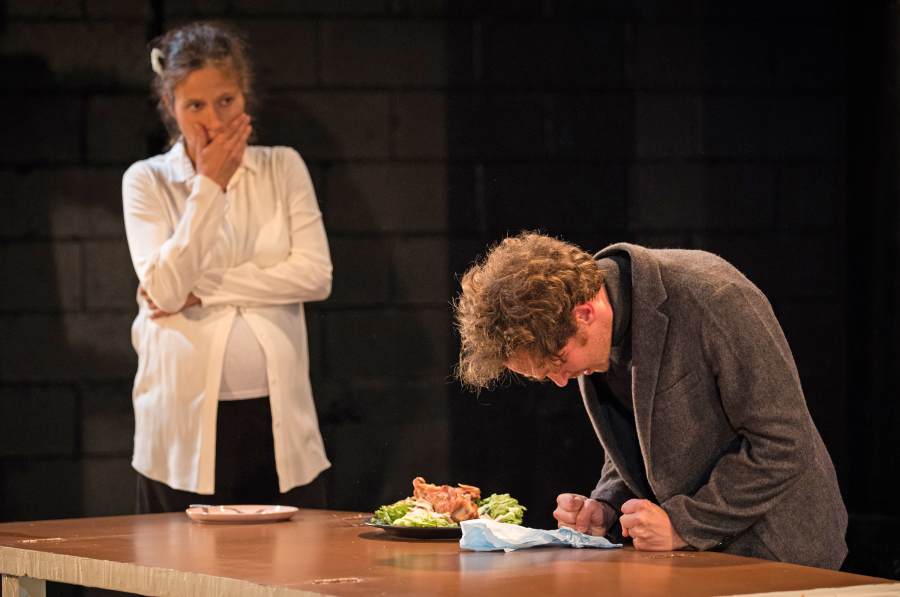

The American family drama gets a contemporary and creative spin in a very nice new play, The Itch, written by Alexandra Zelma-Doring and directed by Theresa Buchheister. A smart and well developed structure facilitates a textured and poignant relationship between the play's focus, Ana, and her twin, Simon, who struggles with addiction and that rock star itch to get out of town.
But the twins love each other, and understand one another in that special twin way, so Ana commits herself to helping Simon. The play is about how he struggles and how she sacrifices, and boy does he struggle, and boy does she sacrifice. Performed by Zelma-Doring, Ana absolutely exudes the exhaustion of her burden, and it’s genuinely depressing. I’d run through a wall if she could shake it, but that won't happen as long as Simon (Gore Abrams) is sick, and his addiction is clearly much more than chemical; he believes in cutting town in that old American cowboy way.
In this way, figures of the classic American family drama, the mother with the burden of her family and the directionless (charismatic but obnoxious) young man, are recast as Ana and Simon. Their relationship is rather detailed, satisfying. Ana is depressed and intelligent, Simon depressed and passionate. They play music together, a nice acoustic melodic thing that I’d for sure listen to. She’s attempting to sell one of her eggs for his treatment. He, uh, has some latent romantic feelings for her, or at least sexual desire attached to her -- and all jokes aside it's a very compelling detail to consider. Many new plays prefer a prescribed dynamic — which I get, makers want spectators to see a very certain thing — but I enjoyed and appreciated the different lights with which we could view these two.
And the relationship was facilitated by a story structure that felt really matured. The details of Simon’s condition are slowly revealed, so the house is already emotionally involved in the charming yet troubled young man. The same for Ana selling her egg, which at first seems like an abortion and reveals itself as this sad and insanely altruistic act. The well-developed elements of the story contribute to the richness of the piece and are truly why the piece is satisfying.
Buchheister’s direction, a light touch with strong theatrical instincts, creates compelling moments as well. Simon’s opening monologue is underscored by Ana working a tune out on her guitar. As one character may deliver a speech, another finds themselves in a physical position that reflects on the mood and tenor of the moment. The play also had a few intermedial elements that reflected on the characters feelings about their family. Mom and Dad are seen in the play, but only their video responses, which are timed to align with the performers; and evidently, they are not actually listening, not there in the conversation.
Ana and Simon are the heart and soul of the play, and they do not resolve at its conclusion. I liked that. The play has some unhelpful unresolved questions, but the ambiguity of the core relationship gave the work an American honestly I appreciated. Awesome, another awesome, and super sad, American family play.